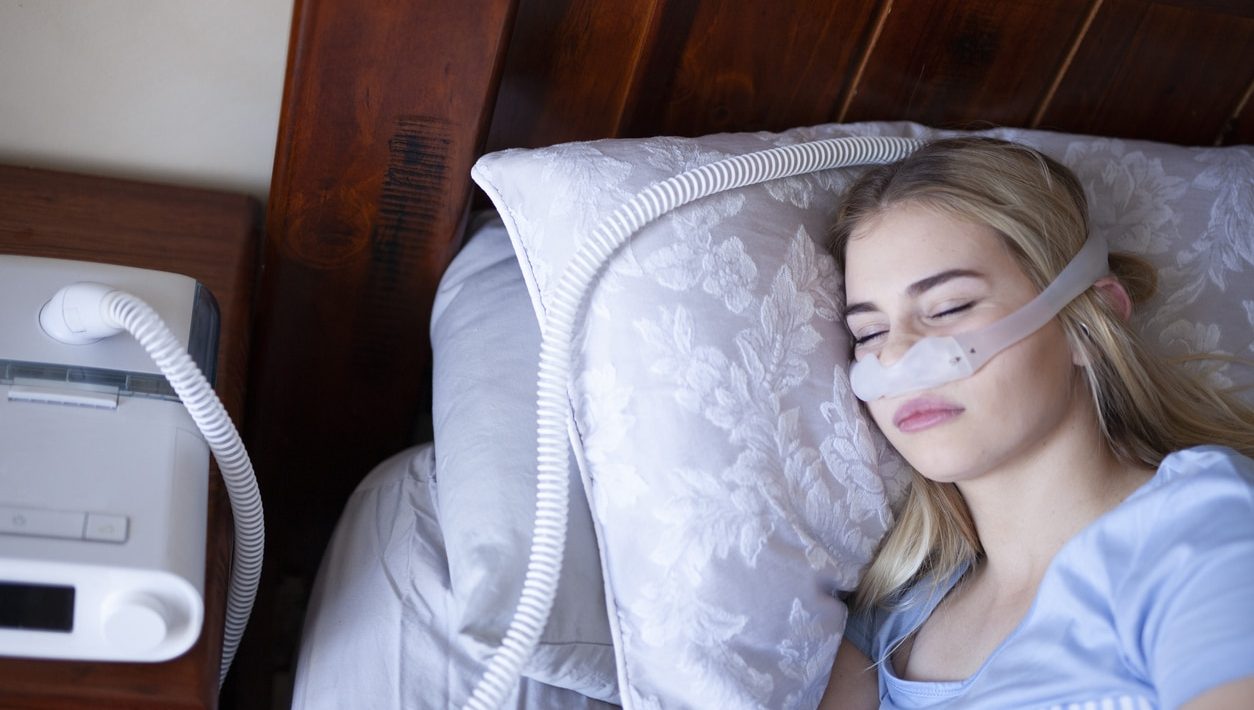If you’re one of the many people with sleep apnea using a CPAP machine to get through the night, chances are you have a Philips CPAP in your possession. You might be frightened to hear news stories of the machines, which are now being recalled voluntarily due to heightened cancer risks. But, what exactly is the connection between Philips CPAP machines and cancer? Below is everything you need to know about the machines and how you might be affected.
Table of Contents
Do All CPAP Machines Pose a Risk for Cancer?
Although all CPAP machines work in a similar way, it’s important to remember that not all CPAP machines are created equal. In fact, the two most popular types of CPAP machines on the market today are Philips Respironics and ResMed. Of these two brands, Philips Respironics uses polyurethane in its machines.
Polyurethane is already a probable carcinogen, and can be dangerous to human health. Unfortunately, the material is used as sound abatement in many different CPAP machines. This means that when the machine is turned on, polyurethane is used to make the machine quieter. When it breaks down due to heat and ozone, it is released into the tubing and can be inhaled by whoever is using the machine.
So, while it’s true that all CPAP machines come with some risks, it’s important to remember that not all CPAP machines are created equal. Only those machines by Philips using the polyurethane currently pose a risk to health.
What Specific CPAP Machines Are Affected?
You can find a detailed list and characteristics of the CPAP machines affected on the Philips website. Models that are part of the voluntary recall include:
Continuous Ventilator, Non-life Supporting
- DreamStation ASV
- DreamStation ST, AVAPS
- SystemOne ASV4
- C-Series ASV
- C-Series S/T and AVAPS
- OmniLab Advanced+
Noncontinuous Ventilator
- SystemOne (Q-Series)
- DreamStation
- DreamStation Go
- Dorma 400
- Dorma 500
- REMstar SE Auto
Is There Evidence Polyurethane Leads to Cancer?
According to the FDA, when polyurethane is heated, it can break down and release dangerous chemicals into the tubing of the CPAP. These chemicals are known to be toxic and carcinogenic, meaning they have the potential to cause cancer. Specifically, they’ve been linked to an increased risk of lung cancer, kidney problems, and liver problems.
While there is no direct evidence linking Philips CPAP machines to cancer, the FDA has warned against using the machines due to the potential risks associated with polyurethane.
In addition, studies have shown that these machines can lead to lung deterioration, which can lead to overall negative health outcomes for people with sleep apnea.
What Should I Do If I Have a Philips CPAP Machine?
If you have a Philips CPAP machine, the best thing you can do is stop using it immediately and contact your doctor. Your doctor will be the best resource in determining whether or not you need to be seen for any health concerns related to your CPAP machine.
In addition, you should contact Philips directly to find out how to return your machine and get a refund. Unfortunately, many people have reported that it’s taken them months to get their machine repaired and sent back to them.
Sadly, these people have limited options and must continue to use their CPAP machine while they wait, putting themselves at further risk for health complications.
If you have a Philips CPAP machine, it’s important to be aware of the risks associated with the machine. However, it’s also important to remember that not all CPAP machines are created equal. If you’re concerned about your CPAP machine, the best thing you can do is speak with your doctor and find out if you need to be seen for any health concerns or contact a lawyer for help with compensation.





